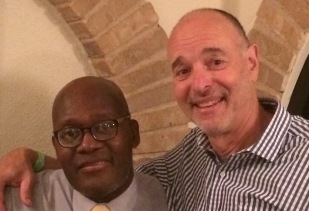“If you don’t know why, you don’t know”
 When we started teaching, we thought our job was to tell students what they needed to know, to “make them learn.” As we gained experience and availed ourselves of the mentorship of veteran teachers, our chairmen and a host of colleagues, we came to the realization that to be a successful teacher is to get the students to “teach themselves”, that is to say to get them to go where you need them to be without them ever knowing they are doing the work to get there.
When we started teaching, we thought our job was to tell students what they needed to know, to “make them learn.” As we gained experience and availed ourselves of the mentorship of veteran teachers, our chairmen and a host of colleagues, we came to the realization that to be a successful teacher is to get the students to “teach themselves”, that is to say to get them to go where you need them to be without them ever knowing they are doing the work to get there.
We learned to challenge students with questions that later became “best practices” for students’ success. One example of this was asking students if the aphorism, “If you don’t know why, you don’t know”, was true or false and have them explain their answer.
Another one was asking them, “What is the most important question to ask in order to be a successful student?” (The answer is the word “why” because you cannot know why the answer is correct without knowing the answer).
Yet another one was asking them why the statement, “What you cannot explain, you do not understand”, was either true or false.
These questions, and others like them, were designed to encourage students to have to examine, analyze, break down into smaller pieces the ideas that were CONTINUE READING: “If you don’t know why, you don’t know” | DCGEducator: Doing The Right Thing

